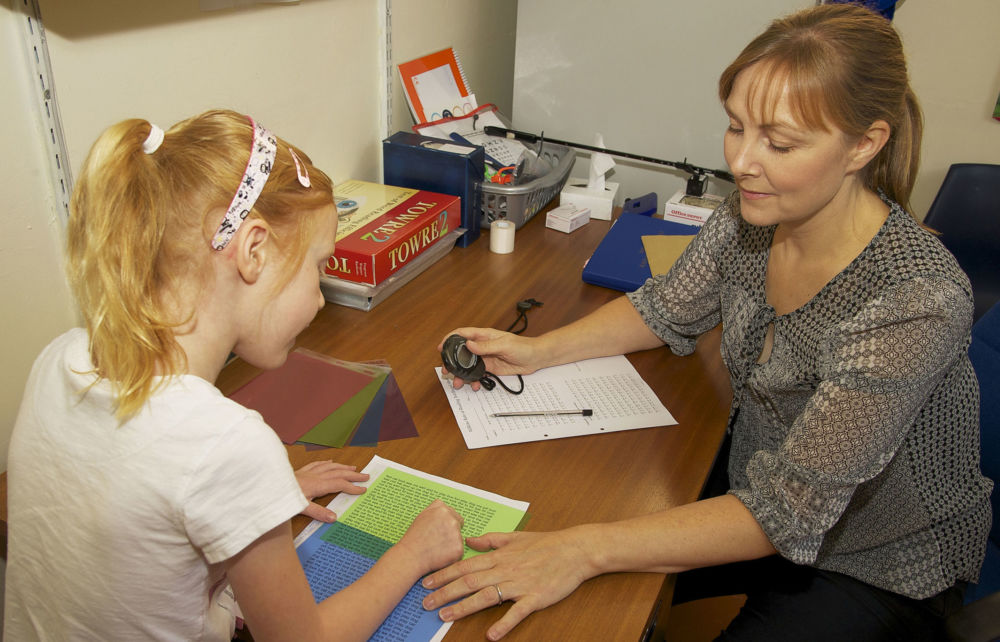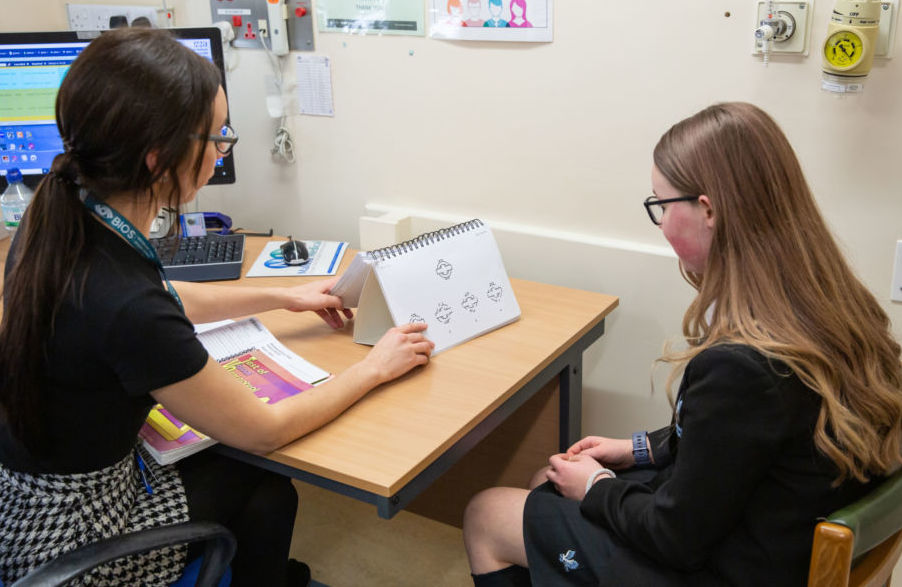Visual Processing Difficulties

An Orthoptic Visual Processing Difficulties (VPD) Clinic is a clinic run by Orthoptists to help children with eye problems related to or contributing to a reading or specific learning difficulty.
What is Visual Processing?
Visual Processing is the way the brain makes sense of visual information. It is the brain’s ability to process and interpret what the eyes see. It includes how the eyes work together (binocular vision), tracking of the eyes whilst reading, making fast eye movements, visual comfort and the perceptual aspects of vision. When a child or an adult has difficulties with visual processing this can produce signs and symptoms and they may be referred to an orthoptist who specialises in this area.
About the Service
- The purpose of the service is to identify and correct visual difficulties that will in some way contribute to a child having a reading or specific learning difficulty.
- The service allows a child better access to the curriculum by correcting visual difficulties and helping to place them on an equal footing with other children. An example of a good outcome would be to correct a child’s inaccurate eye movement or binocular vision difficulty. This would allow them to track a line of text correctly and gain greater comprehension of what was read. Another example would be to enable a child to concentrate on text for a longer period without fatigue or eye strain/discomfort thereby allowing them to keep up with their peers and/or contribute to the lesson.
Signs and symptoms of visual processing difficulties
Visual processing difficulties that affect reading can be identified in a child (over 7 years) or adult who either does not require glasses and has some or all of the following difficulties or still has these difficulties below despite wearing their glasses.
Following reading do you or your child notice any of the following?
- Frowning, scowling or screwing eyes up with visual tasks
- Blurry vision at any time
- Print jumbling or merging together
- Seeing double
- Holding books too closely or too far away.
- Tilting of the head
- Poor posture/ wriggling at desk
- Moving head excessively or forwards or backwards while looking at the page
- Red eyes or lids
- Pain around the eyes
- Headaches, especially around the front of the head
- Excessive eye watering
- Rubbing eyes frequently
- Closing or covering one or both eyes in bright light or during visual tasks
- Repeatedly confusing right / left directions
- Skipping or re-reading words or letters
- Reversals when reading e.g. was/saw, on/no, b/d, p,q
- Transposing letters when writing
- Losing place frequently when reading
- Uses finger as a marker when reading
- Repeatedly missing ‘small’ words
- Getting confused by symbols such as + /-
- Mistaking words with the same or similar beginnings or endings
- Failing to recognise the same word in the next sentence
- Confusing the same word in the same sentence
- Struggling to remember sequences
- Struggling to copy from the board
If there are a few sections that you or your child have difficulties with and the child is over the age of approximately 7 years (as some of these difficulties are normal for younger children) then we would suggest an Orthoptic assessment. It is important that an Orthoptist be involved in the assessment of these difficulties as we are specialists in assessing binocular vision and eye movements.
Orthoptists will:
- Determine visual problems relating to reading and writing skills
- Manage the visual processing difficulties in a child or young person centred way
- Offer support to parents and teachers
- Offer advice and guidance to schools, Colleges and Universities

How do I get to see a specialist orthoptist?
We are creating a map of services that offer assessment and treatment for visual processing difficulties – this will be available soon. In the meantime please do contact us and we will be happy to put you in touch with an NHS hospital department near to you with an Orthoptist or team of Orthoptists who will be able to assess, diagnose and treat visual processing difficulties.
Information and resources
- Dyslexia: https://www.bdadyslexia.org.uk/
- Dyspraxia: https://dyspraxiafoundation.org.uk/
- Dyscalculia: https://www.dyscalculia.org/
- AD(H)D: http://www.addiss.co.uk/
- Autism: https://www.autism.org.uk/
- Visual Stress: https://www1.essex.ac.uk/psychology/overlays/
- Food and behaviour research: https://www.fabresearch.org/